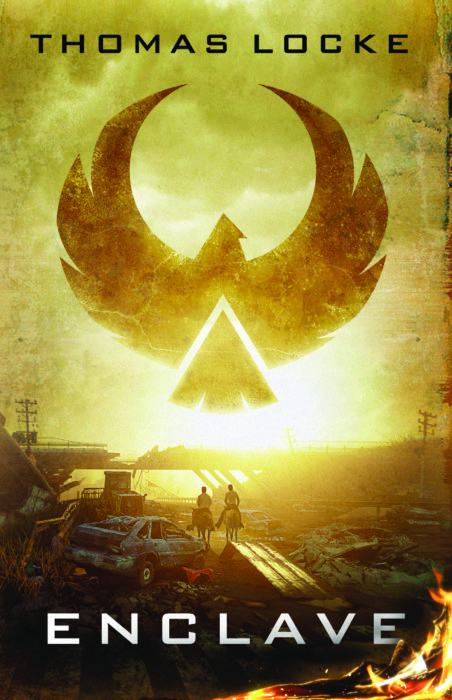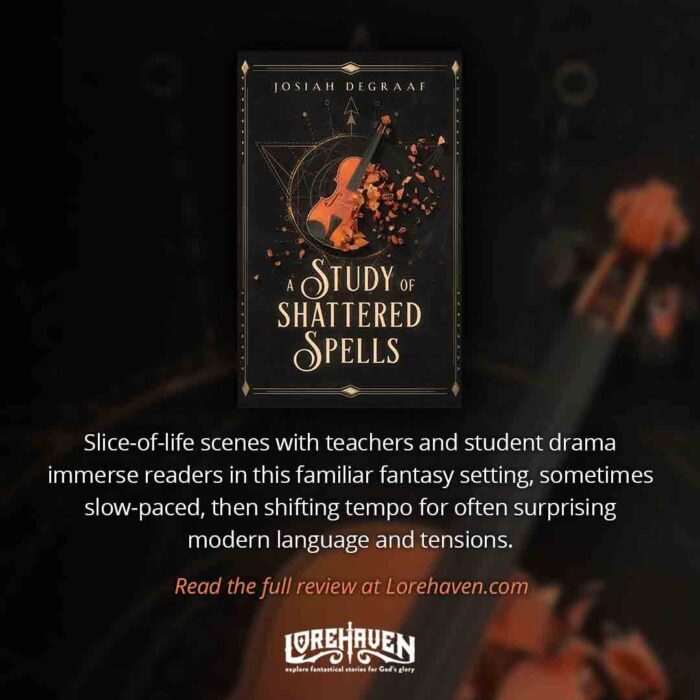After America falls, white-hat heroes work for a better world.
People like to complain that the United States is doomed to collapse. But who’s doing anything to plan recovery for the post-post-apocalypse?
Enter Kevin and Caleb from Thomas Locke’s novel Enclave. They’re two normal yet virtuous young men from the former nation. Several generations ago America fell into financial ruin. Now in the South, life has taken a frontier turn. Corrupt mayors rule the bigger cities called enclaves. What’s left of the federal government is off hunting down super-gifted people. These come from rumored genetic testing and are called “specials” or “adepts.”
Think Louis L’amour meets The Hunger Games–lite with a sprinkle of X-Men.
Other dystopian heroes might brood or tie themselves up in moral quandaries. Some would opt for the ol’ new-fashioned love triangle. But sheriff’s deputy Kevin is too busy helping smuggle adept persons out of his city. Trader’s son Caleb is too busy trying to hide a stash of silver and understand his own telepathy-like special gift.
Both men meet after Mayor Silas Fleming exposes Kevin’s operation and Kevin finds himself on the run to Atlanta with Caleb. Their road trip brings hazards like adept-hunting armies and mercenary traders. Militia members from hostile enclaves could discover Caleb’s special gift or secret wealth. Caleb seeks a secure outlet for the mine’s secret fortune and a way to resist the enclaves’ lawlessness.
Like his characters, Locke emphasizes basic needs in this world. Occasionally a turn of phrase or description may stop one to ponder. Otherwise the style is simple and serviceable. This itself sets up a world that’s gone for a long while without niceties.
What about this world’s religions? Patriotism? Christians raised in America may inherit a long tradition of expecting the nation to act as a righteous “city on a hill.” Or else turn into a smoking crater after divine judgment. Either way, such notions might also seem like luxuries in Locke’s post-America. Apart from one reference to the idea of Jesus’s second coming, everyone is basically moral-secular. They have somehow inherited only the West’s Judeo-Christian tradition. They’re blind to the nonsense from today’s popular far-right, far-left, or sexual/identity revolutions.
Readers also go without backstory for some time. What led to the Great Crash? What’s happening in the rest of the world? We don’t learn much. But again, other dystopian stories’ heroes seem to afford luxuries like inner monologue. They have no excuse for disinterest in the wider world. In Enclave, heroes and author just get on with the duty before them. After a while this plainness starts to make more sense.
So does the story’s final act. It breaks from a previous constant trot into a full gallop for a finale that leaves readers wanting to know what’s next. Alas, this story may stand alone. But even if so, it leaves young readers without the despair often associated with the “dystopian” genre and with hope to regain a better society.
Best for: Dystopian fiction fans, disillusioned by the genre’s teen or disaster angst.
Discern: Mild romance, mild violence, and a few descriptions of injury.

Thomas Locke, also known as Davis Bunn, has written dozens of novels with worldwide sales of seven million copies. He currently lives in Oxford.
TLocke.com
@TLockeBooks
Explore this novel in the Lorehaven Library.

































Have you read Enclave ? Share your own review.